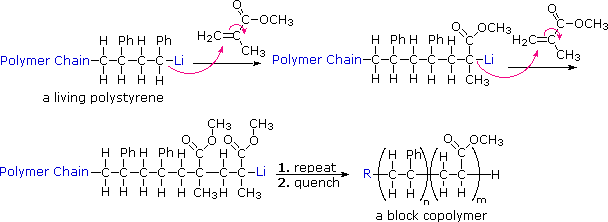Exploring the Varied Applications and Benefits of Polymers in Different Industries
Polymers, with their diverse array of residential properties and capabilities, have ended up being crucial in numerous markets, each enjoying special benefits from their application. From boosting safety and security and efficiency in the automobile industry to revolutionizing medical tools in the healthcare industry, polymers play a pivotal role.
Automotive Industry Applications
Polymers play a crucial duty in enhancing the performance and sturdiness of different parts within the vehicle field. These functional products are thoroughly made use of in the manufacturing of various components, ranging from interior parts to under-the-hood applications. One noticeable use polymers in the automobile market remains in the manufacturing of lightweight components. By replacing standard steel components with polymer-based alternatives, cars can achieve improved fuel effectiveness without compromising on stamina or safety and security.

Health Care Market Advantages
In different healthcare applications, the advantages of using polymers are widely acknowledged for their varied series of useful properties. Polymers play a crucial role in the health care industry due to their adaptability, biocompatibility, and cost-effectiveness. Among the main benefits of polymers in health care is their ability to be tailored to specific demands, such as versatility, resilience, and biodegradability, making them perfect for a vast range of clinical applications.
Polymer-based products are extensively utilized in medical gadgets, such as catheters, implants, prosthetics, and medication distribution systems, because of their biocompatibility and ability to simulate natural cells. These materials can decrease the threat of allergic responses or rejections, boosting person safety and security and outcomes. Additionally, polymers are light-weight, making them ideal for wearable medical gadgets and ensuring patient convenience.
Moreover, polymers allow the growth of innovative treatment techniques, such as hydrogels for tissue engineering and nanocomposites for targeted medication distribution. Their ease of processing and sterilization makes them essential for preserving high standards of hygiene in medical care setups. Generally, the varied advantages of polymers add dramatically to improvements in medical innovation and person treatment.
Environmental Advantages of Polymers

In addition, polymers can add to energy savings because of their lightweight nature. In industries such as transportation, light-weight polymer materials can help in reducing fuel usage and greenhouse gas emissions. Additionally, polymers can make it possible for the growth of energy-efficient items such as insulation materials that enhance power preservation in buildings.
In addition, polymers play an important function in minimizing water air pollution. For instance, using polymer-based purification systems can effectively remove toxins and impurities from wastewater, protecting water sources and environments. In general, the ecological advantages of polymers make them valuable possessions in advertising sustainability and green methods across numerous industries.
Polymers in Electronics and Innovation
Thinking about the increasing demand for innovative and lasting remedies in modern industries, the integration of sophisticated over at this website polymer innovations in the realm of electronics and innovation has actually arised as a critical technique for driving performance and efficiency. Polymers have reinvented the electronic devices industry by allowing the manufacturing of lighter, more flexible, and sturdy digital tools. From mobile phones to medical devices, polymers play an important role in boosting item layout and capability.
One substantial advantage of polymers in electronics is their shielding residential or commercial properties, which help safeguard fragile digital parts from environmental elements and electric interference. Additionally, polymers are essential in the growth of versatile screens, wearable innovation, and printed electronic devices, supplying unlimited opportunities for creating smart and interconnected gadgets.
Moreover, making use of polymers in electronic packaging has actually led to developments in miniaturization and thermal monitoring, improving the general efficiency and integrity of digital systems. As modern technology remains to develop, the flexibility and flexibility of polymers will unquestionably drive additionally technology in the electronics like it market, forming the future of innovation.
Role of Polymers in Building and Infrastructure
Polymers provide numerous benefits in the building market due to their adaptability, longevity, and cost-effectiveness. One key duty of polymers in building and construction is their use in coverings and sealants, supplying protection versus ecological variables such as moisture, UV radiation, and corrosion.
In addition, polymers play a critical role in lasting building practices by allowing the development of energy-efficient frameworks. Insulating products made from polymers assist control interior temperatures, reducing the requirement for heating and check out this site cooling down systems and eventually decreasing energy intake. The usage of polymer-based composites in facilities tasks such as bridges and roads improves their long life and reduces maintenance expenses. Overall, the consolidation of polymers in building and construction and infrastructure showcases their considerable effect on modern engineering methods.
Conclusion
In verdict, polymers play a vital function in various industries such as auto, medical care, environmental, electronics, and construction. From boosting gas effectiveness in cars to enhancing clinical gadgets, polymers offer numerous benefits.